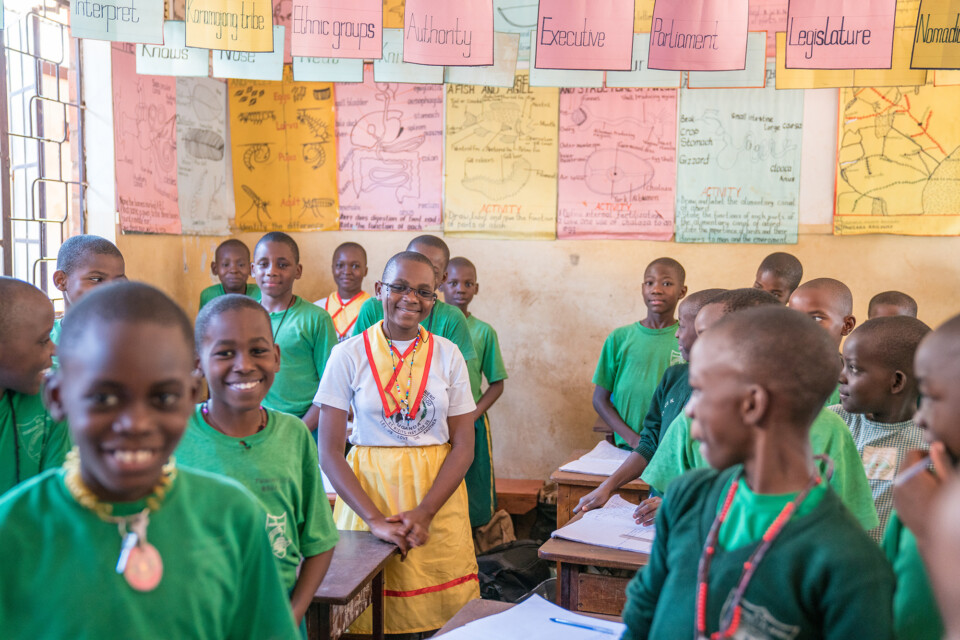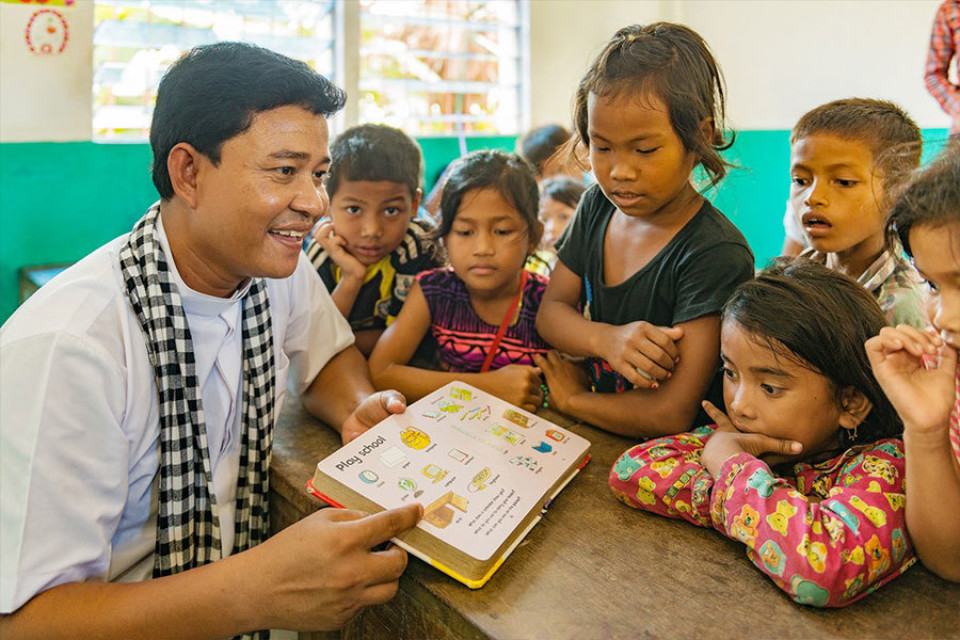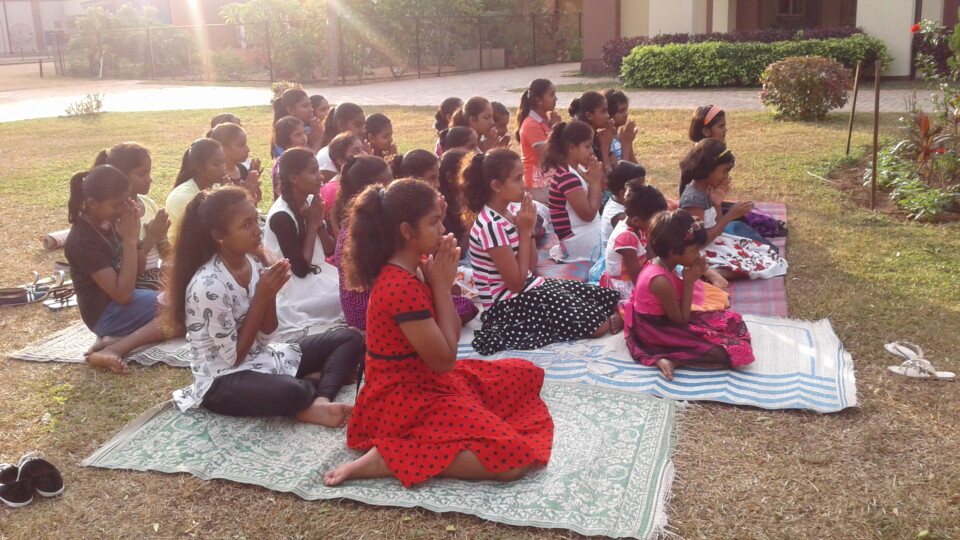
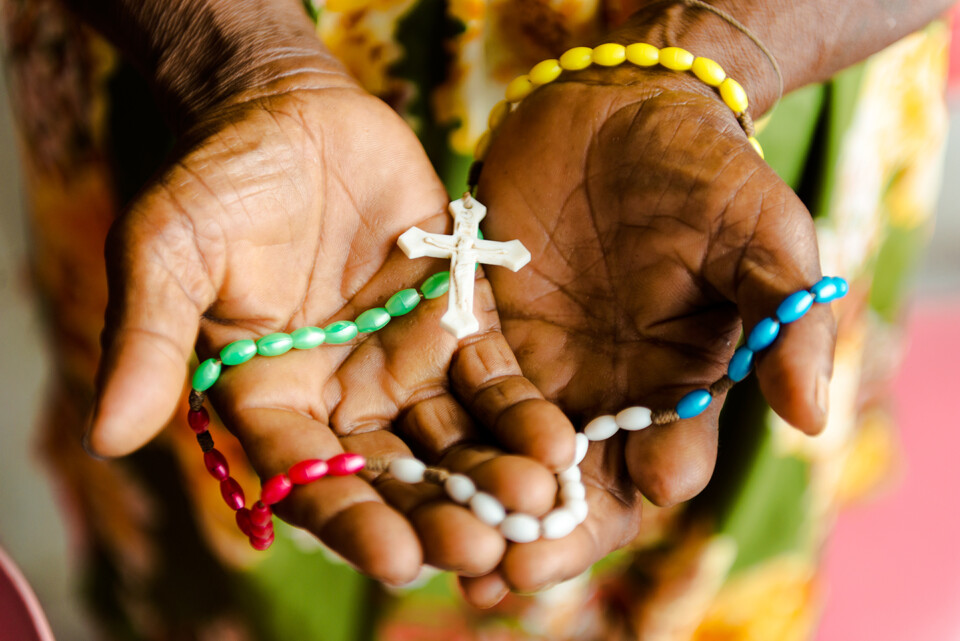
Illuminating the faith
Catechists play an important role in bringing faith to life, especially for young people in Catholic communities around the world. In Papua New Guinea, catechists are essential in bringing the Gospel to remote communities, sometimes unreachable by priests. These messengers of the Word need as much rich formation as they provide for others, and their training and development are crucially supported by our Friends in Faith partners.
In Pope Paul VI’s 1965 decree Christus Dominus, the role and importance of catechism is clearly spelled out.
‘Bishops should take pains that catechetical instruction—which is intended to make the faith, as illumined by teaching, a vital, explicit and effective force in the lives of [people]—be given with sedulous care to both children and adolescents, youths and adults.’
Catechism is intended to illuminate faith; to bring it to life for people young and old. The role of the catechist is to educate, inform, and achieve this important aim. In some parts of the world, the catechist may be called upon to facilitate many elements of the faith journey, in particular the preparation of young people for the sacraments.
‘One of the most important responsibilities of parish priests is to ensure that there is a proper catechetical formation for the catechists who will carry out the task of preparing the children for the First Confession and First Holy Communion and for the Sacrament of Confirmation,’ says Sr Imelda B. Mission, the head of the catechesis program in the Archdiocese of Port Moresby, Papua New Guinea. Between 70 and 85 catechists are receiving crucial formation and training through the program.
Catechists in developing countries such as Papua New Guinea have a very different role to those in Australia. Although they may share a fundamental formation and some practical duties, in many overseas countries the catechist may train in a diploma-like program and even receive payment. In countries like Papua New Guinea, with less-developed transport infrastructure, the catechist is critical, as some towns take two to three days to reach by river. It is impossible for the limited number of priests to reach all of these towns, so catechists have the special role of bringing the Gospel and the Eucharist when the parish priest cannot.
Our Friends in Faith partners have contributed to the ongoing formation of these catechists in the Port Moresby Archdiocese. ‘The children who benefit from this program are those who are receiving the sacraments, attending Sunday School and learning about their faith in schools, both government and private,’ says Sr Imelda.
Sister Imelda says that well-trained catechists are important to achieving the Archdiocese’s goals. ‘The formation of catechists is essential to attaining the objectives of the apostolate’s program,’ she says. ‘Our orientation and integration program also aims to help the catechist to be attuned to their ministry and promote a “community spirit” among other catechists.’
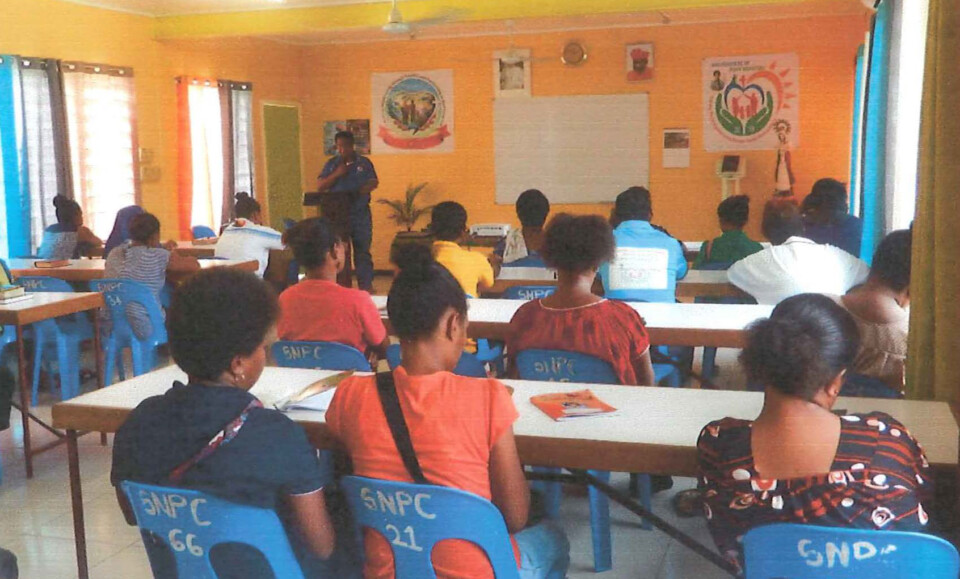
A catechism class underway in Port Moresby, Papua New Guinea
This may have a flow-on effect elsewhere. ‘Religious education takes place in many different settings, including the home, the parish and the school,’ says Sister Imelda. The Archdiocese works with local schools to bring religious education into the classroom environment. ‘The catechetical formation of the child does not end with the First Holy Communion,’ says Sister Imelda. ‘The formation extends to when children are attending school and religious instruction is given in both government and Catholic schools.’
Whether it is preparation for the first sacraments, or adult baptism, or for marriage, catechists play a very important role in Port Moresby’s Catholic community. Sister Imelda says your support is needed to ensure the catechists, as well as those they educate, can receive full formation. ‘While the catechists provide formation in the faith for their students, they too must be provided with very rich opportunities for renewal and growth. Catholic Mission’s Friends in Faith program contributes regular funding that ensures critical faith services such as this can continue. The regular contribution you make goes towards the materials, stipends and other running costs to ensure faith communities in Papua New Guinea and around the world can be strengthened and empowered.
